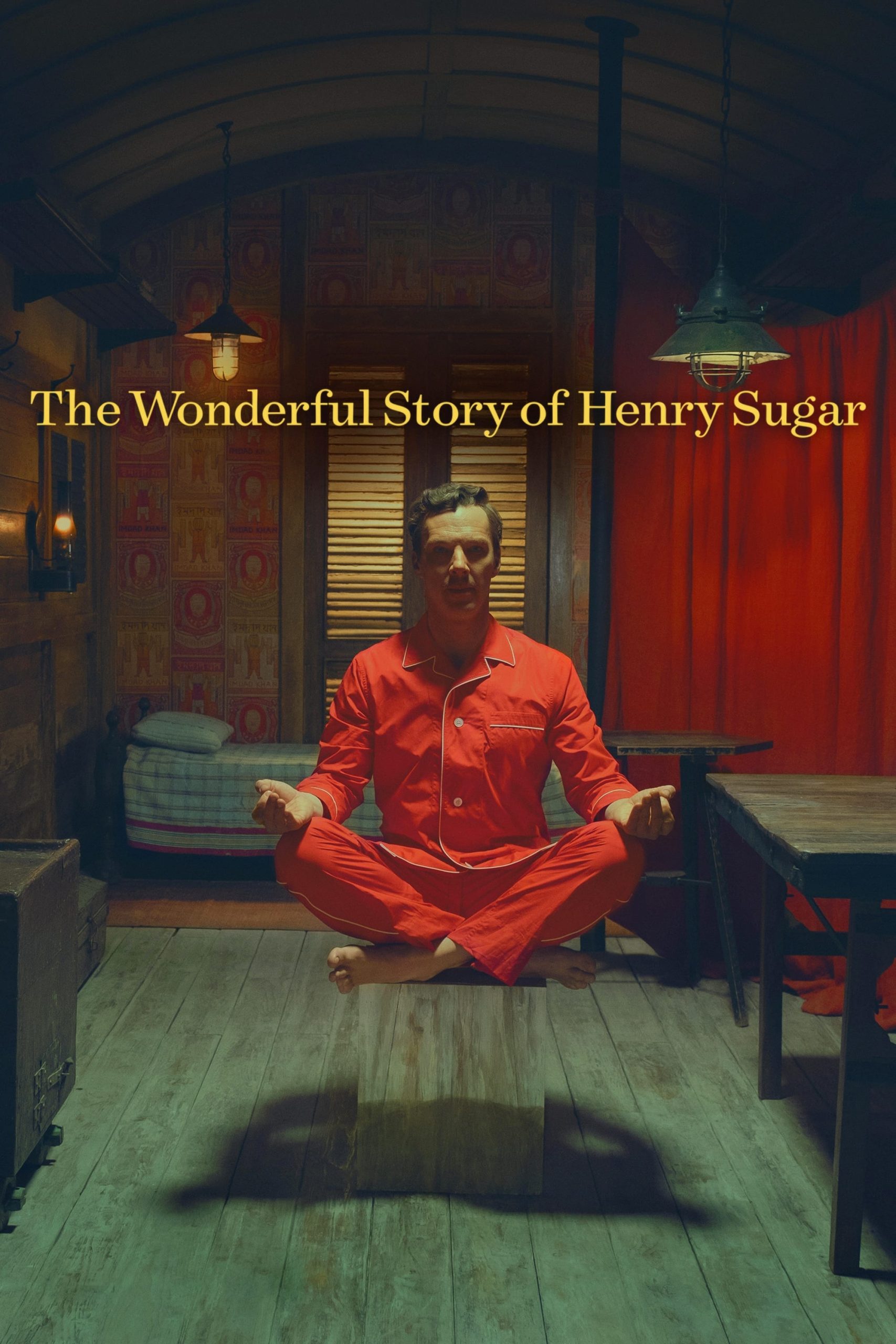
A rich man learns about a guru who can see without using his eyes. He sets out to master the skill in order to cheat at gambling.
03 Dec The Wonderful Story of Henry Sugar (2023)
Shifting of Equalities
We have all watched as Wes moved more and more toward where he finds his soul as a storyteller — a constant movement toward what we have here, powerful enough to earn a place on my list of ‘fours’. Depending on when you ask, these are the films that I think are important if you want to build a life in cinema, or alternatively the films that for some reason I believe have changed me.
Long time readers (I started in 1999!) will know that the project has been on low activity until recently, and my list of fours has not been updated in over a decade. Now I place this as one of the two allowed for 2023.
There are three devices used here, but they both are used for multiple ‘folding’ effects.
- The first is that every story element is narrated, and well beyond what would normally be spoken, to the level of a shooting script.
- The second is that the staging is both explicit and abstract. If a prop is to be delivered, you see the stagehand, perhaps even taking it from a labelled stage box. The sets are panels that are moved to change the scene.
- The third is a combination of the two. Each narrator is in centre stage looking directly at me with the minimum of movement and (in most cases) no dramatic embellishments.
These three simple techniques are used for nesting of layers. The simplicity of artifice, the perfect compositions, and ultra managed palette all bely the massive asymmetries in the narrative.
The story is about the benefits that can be wrought from seeing magically. What’s taken away enriches what we can add. Other stories in this collection are less perfect for the technique and at least one is an unwatchable failure.
Quite apart from the singular effectiveness of this project, is the journey it punctuates. Asteroid City was overwrought for the experimental chassis — or rather, it is an assembly of interwoven narratives — not quite episodes — where each thread is as unimportant as details in the painted set. What matters is the statement of purity in the art. This is von Trier’s Dogme 95 but through a different distillation process. Dogma took away all the cinematic effects to focus on the reality of what the players can spin as situations. This is the obverse: taking away all the viscera of body acting and making all the tradecraft of cinema into obvious paper.
This is important. Cinema is still a young and dynamic domain. We’ll see some change.
Posted in 2024
Ted’s Evaluation — 4 of 3: Every cineliterate person should experience this.


No Comments